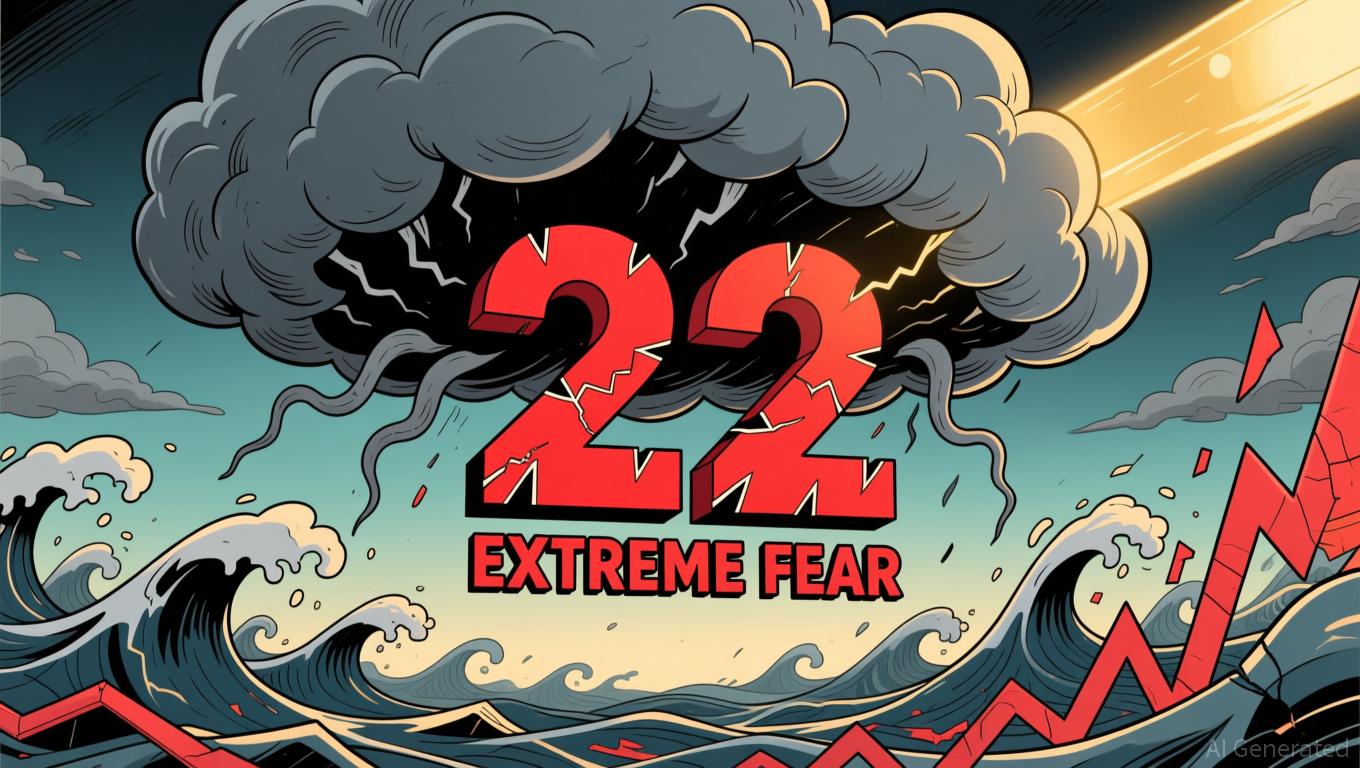Zcash News Today: Zcash's Privacy Features Thrive Despite Regulatory Challenges
- Zcash (ZEC) sees 560% surge in transaction fees to $47.5M, ranking fourth in layer-one blockchain revenue. - Price jumps 40% in Nov 2025, market cap grows from $1B to $7B as privacy demand outpaces regulatory crackdowns. - Grayscale files Zcash ETF (ZCSH) proposal, mirroring Bitcoin strategy to institutionalize privacy-focused crypto. - EU/2027 privacy coin phaseout and exchange restrictions on ZEC/XMR/DASH heighten liquidity risks amid legal uncertainties. - Analysts debate Zcash's rally as either "resp
Zcash Defies Market Downturn with Remarkable Growth
Amid a generally declining cryptocurrency landscape, Zcash (ZEC) has distinguished itself with a dramatic increase in transaction fee revenue, soaring by 560% to reach $47.5 million within a single month. This impressive growth has elevated Zcash to the fourth spot among layer-one blockchains in terms of fee generation.
This momentum follows a notable 40% price surge in November 2025 and a short-lived return to large-cap status, with its market value surpassing $10 billion. The blockchain’s emphasis on privacy has fueled heightened interest in shielded transactions, attracting investors seeking alternatives as regulatory scrutiny intensifies for other privacy-focused tokens.
Key Drivers Behind Zcash’s Recent Success
Zcash’s recent achievements are rooted in both technical advancements and structural reforms. The 2024 halving event, which reduced block rewards and curbed inflation, coincided with the NU6.1 governance update, granting tokenholders greater influence over funding decisions. These developments have strengthened the network’s economic foundation.
Additionally, the growing use of shielded transactions—which conceal sender, recipient, and transaction amounts—signals rising demand for privacy features. Zcash has also climbed to the top of Coinbase’s search rankings, even surpassing Bitcoin and XRP, highlighting its appeal among retail investors looking for new opportunities.

Institutional Interest and Market Expansion
Institutional confidence in Zcash is further underscored by Grayscale’s application to launch a U.S.-listed Zcash ETF, which would trade under the ticker ZCSH. This proposed fund follows the company’s successful transition of its Bitcoin trust into an ETF and could help establish Zcash as a mainstream investment option.
Since August, Zcash’s market capitalization has surged from under $1 billion to over $7 billion by November, briefly overtaking Monero to become the leading privacy coin by market value.
Regulatory Challenges Facing Privacy Coins
Despite these gains, privacy tokens as a whole continue to face mounting regulatory pressure. The Financial Action Task Force has ramped up anti-money laundering (AML) enforcement, and the European Union’s 2024/1624 regulation will eliminate support for privacy coins on licensed platforms by 2027. Major exchanges such as Binance and Kraken have already limited trading of ZEC, XMR, and DASH in certain regions, increasing liquidity concerns.
Legal uncertainties persist, exemplified by the U.S. prosecution of Samourai Wallet’s founders in November 2025, which adds further complexity to the regulatory environment for privacy-centric projects.
Debate Over Zcash’s Future
Experts remain divided on whether Zcash’s recent rally marks a lasting transformation or a speculative bubble. Supporters point to its technological improvements and its reputation as a “responsible” privacy coin in an era of stricter AML regulations. Critics, on the other hand, interpret the surge as either a reaction against increased surveillance or a late-stage spike in a contracting high-risk sector.
The outlook for privacy coins like Zcash will depend on how well the sector can balance innovation in privacy with evolving regulatory demands, as demonstrated by ongoing experiments with optional privacy features on major blockchain networks.
Disclaimer: The content of this article solely reflects the author's opinion and does not represent the platform in any capacity. This article is not intended to serve as a reference for making investment decisions.
You may also like
Switzerland Postpones Crypto Tax Data Exchange to Meet Technological and International Requirements
- Switzerland delays crypto tax data sharing until 2027, aligning with global regulatory reevaluations amid evolving tech and market dynamics. - SGS acquires Australia's Information Quality to boost digital revenue, reflecting Swiss firms' expansion into tech-driven compliance solutions. - Canada's Alberta oil sands policy shift highlights governments prioritizing economic growth over strict climate regulations, mirroring Switzerland's approach. - BridgeBio's precision medicine and Aires' EMF solutions dem

Switzerland's Focus on Privacy Conflicts with International Efforts for Crypto Taxation
- Switzerland delays crypto tax data sharing with international partners until 2027, contrasting with global regulatory efforts to close offshore loopholes. - The U.S. advances implementation of the OECD's CARF framework, aiming to automate reporting on foreign crypto accounts by 2029. - CARF requires foreign exchanges to report U.S. account details, mirroring traditional tax standards and targeting crypto tax evasion. - Switzerland's privacy-focused stance highlights tensions between financial confidentia

Zcash News Update: Reliance Shifts Entirely to Zcash, Citing Privacy and Regulatory Alignment
- Reliance Global Group, a Nasdaq-listed fintech firm, shifted its entire crypto portfolio to Zcash (ZEC), divesting Bitcoin , Ethereum , and other major coins. - The strategic pivot, announced November 25, prioritizes Zcash's privacy-focused zk-SNARKs technology for institutional compliance and selective data disclosure. - Zcash's 1,200% 90-day price surge and Grayscale's ETF filing highlight growing institutional interest in privacy-centric assets. - The move reflects broader crypto industry trends towar
Bitcoin News Update: Bitcoin Fear Index Drops to 22 While Investors Look for Signs of Market Rebound
- Bitcoin Fear & Greed Index rose to 22 from 20, indicating slight easing of extreme fear but persistent bearish sentiment. - Bitcoin stabilized near $87,000 after hitting $80,553, yet remains below key resistance levels amid $3.5B ETF outflows. - Structural factors like leverage and liquidations drive selloffs, with ETF redemptions correlating to 3.4% price drops per $1B outflow. - Analysts note oversold technical indicators and waning retail capitulation as potential inflection points for near-term rebou
